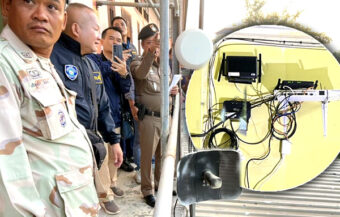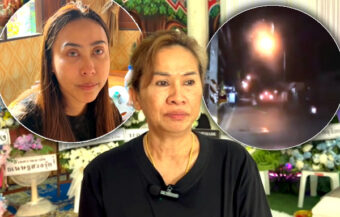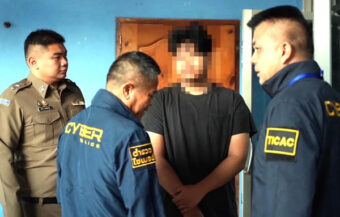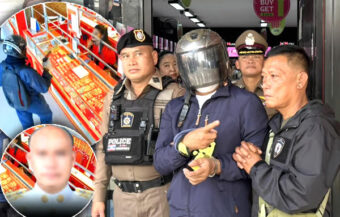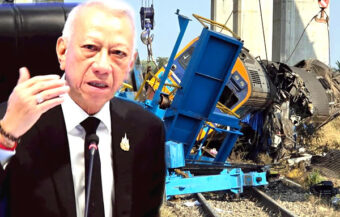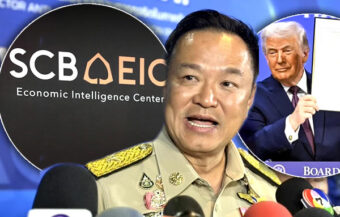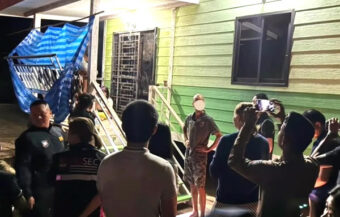Crisis erupts as Prime Minister Anutin’s cabinet faces intense Privy Council scrutiny over ethics and qualifications. The cabinet, coming from political deals, forcing possible resubmission, delaying government formation, and putting the fragile coalition and perhaps the the country’s political future again on the line.
Prime Minister Anutin Charnvirakul stormed out of parliament on Wednesday afternoon amid reports that his cabinet list was in serious jeopardy. Sources say the Privy Council has flagged concerns over multiple ministerial picks. If the objections stand, Anutin may be forced to submit a completely revised list—renegotiating deals with key players in his fragile coalition. This patchwork alliance, built from competing regional interests, now appears increasingly questionable under the stricter standards imposed by the Constitutional Court under the 2017 Constitution.
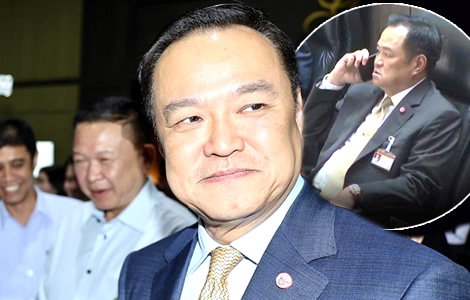
Prime Minister Anutin Charnvirakul’s proposed cabinet has run into trouble. Wednesday evening brought strong reports that the cabinet list submitted to the palace failed to satisfy the Privy Council. Sources say several nominees do not meet ethical or legal requirements. Many fear this setback could destabilise the new government before it even begins.
The trouble stems from the strict enforcement of high standards set by Thailand’s Constitutional Court in recent years. The Court has imposed tighter rules on ministers’ qualifications and ethics. Because of this, even prominent political actors must meet demanding criteria. Some names in Anutin’s list appear not to pass those tests.
Prime Minister Anutin faces scrutiny over cabinet submission amid legal and ethical challenges
On Tuesday, Anutin personally oversaw the submission process of 35 ministerial candidates at Government House. He was joined by Ms. Natthajaree Anantasin, Secretary‑General to the Cabinet, and Mr. Pakorn Nilprapan, Secretary‑General of the Council of State.
Also present were Pol. Gen. Kittirat Phanphet, Commissioner‑General of the Royal Thai Police, and representatives of the Election Commission. They all reviewed credentials and ethics documents. Nonetheless, later scrutiny exposed gaps.
Meanwhile, former Senator Somchai Sawaengkarn — a well‑known political analyst — issued a warning. He said that if Anutin pushed forward with problematic nominees, legal action could follow. Moreover, Somchai suggested that a conflict with the Constitutional Court may force the Prime Minister to dissolve parliament. He argued that dissolution could be a safer route than facing a court challenge.
On Wednesday afternoon, Anutin went to Parliament. He joined a meeting of the House of Representatives. However, after about forty minutes, he abruptly left. Observers noted that he took urgent phone calls before exiting. He offered no public explanation then. Nonetheless, his quick departure fueled speculation that the cabinet list had indeed been rejected or delayed.
Scrutiny intensifies as cabinet faces rejection and Prime Minister leaves parliament amid legal concerns
Reportedly, the Privy Council’s review found deficiencies in the list. Some nominees allegedly lack statutory qualifications. Others have unresolved ethical concerns. No names have been mentioned yet.
Nonetheless, the case of Captain Thamanat Prompow stands out according to political observers. The nomination has intrigued many.
He is proposed for a senior ministerial role and the position of Deputy Prime Minister. Yet Thamanat, once close to Thaksin Shinawatra, was previously held back under the two previous Pheu Thai governments. His exclusion was based on ethical concerns. In fact, he was previously convicted in Australia for drug trafficking, though a Thai court later ruled that conviction could not disqualify him under the 2017 Constitution. Nonetheless, the scandal remains politically toxic.
The final list also reflects several political deals. Particularly, the Kla Tham Party made its support conditional on Thamanat’s inclusion. Because of that, Anutin believed he could consolidate his coalition.
Furthermore, the list includes alliances with smaller regional factions. In fact, Bhumjaithai has attempted to attract MPs from the faltering United Thai Nation (Ruam Thai Sang Chart) Party and from the Democrat Party. Those alliances are key to securing a working majority should the government be confirmed.
Controversy stems from coalition deals, which put the cabinet under Privy Council scrutiny for legal risk
Despite these moves, the rejection by the Privy Council may force a resubmission. If so, the swearing‑in ceremony will be delayed. Also, the government’s promised policy statement to parliament will be postponed. These delays could undermine public confidence. Moreover, they could weaken Anutin’s negotiating position with political allies.
At the same time, Anutin retains an important constitutional tool. He still may dissolve parliament if the cabinet list fails judicial or royal endorsement. Should he exercise that power, general elections would follow. Currently, incumbent ministers would remain in caretaker roles until a new government forms.
Meanwhile, political manoeuvring continues behind the scenes. Anutin’s Bhumjaithai Party is working to boost its ranks. The Bhumjaithai Party aims to emerge with a majority in parliament after the next General Election.
On one front, former MP Chumphon. Mr. Chumphon Chulasai led a group of ex‑lawmakers into Bhumjaithai. Moreover, influential families such as the Kanchana and Losatapornpipit political powerhouses are preparing to join. These groups are strong in southern Surat Thani and Trang provinces. If they come aboard, they could bring dozens of parliamentary votes.
Anutin’s party works to consolidate power through regional alliances and recruit influential political families
Additionally, the Niphon Bunyamanee group is said to be considering defection. His son, Sanphet Bunyamanee, and MP Somyot Plaiduang are names mentioned. They might contest under Bhumjaithai in the next election. Also, other opposition MPs are reportedly being wooed. For instance, members of the Democrat Party in the southern region may defect.
In contrast, the opposition remains cautious. They were already wary of Thamanat’s inclusion and the ethics of several nominees. They also question whether the 2017 Constitution allows for such rapid political realignments. Opposition leaders warn that the constitutional rules were not designed for frequent reshuffles. Yet, they acknowledge the stakes are high for Bhumjaithai and Anutin.
Observers say the rigidity of the 2017 Constitution creates a narrow path for forming cabinets. Because of its strict disqualification clauses, even past convictions or ethical laxity can halt a candidate. Consequently, negotiating political deals becomes riskier. Moreover, ministerial appointments may become more legal than political in nature.
Constitutional rules and legal scrutiny heighten risks for cabinet formation and political negotiations
Nevertheless, in recent hours, government sources confirm that a revised list is under preparation. They say Anutin’s team is exploring replacements for controversial names. Also, they are consulting legal experts to ensure compliance. If successful, the resubmitted list may win Privy Council approval.
The next 48 hours will likely prove decisive. If the revised cabinet is rejected again, Anutin, of course, has the alternative option of dissolving parliament. That would trigger a general election amid rising tensions. This is still very unlikely and would, of course, rule out the plan to revise the constitution, which is presently the root of the problem. Meanwhile, Prime Minister Anutin’s political credibility will be on the line.
PM faces critical hours as cabinet resubmission or election could decide the country’s political path
In sum, the PM’s proposed cabinet faces a deep crisis of legitimacy. Even as he rejigs it, political alliances, ethical and legal oversight, and scrutiny threaten to unravel his plans. Moreover, the constitutional framework grants little leeway for compromise.
Certainly, one misstep or questionable appointment could imperil any future government and, indeed, Mr. Anutin’s own political future.
Former conservative senator warns Prime Minister Anutin’s new cabinet will land him in legal hot water
All eyes are now on the Prime Minister and the exchanges between Government House and the Privy Council. The first question is whether this matter can be cleared up quickly. This would also allow Prime Minister Anutin Charnvirakul to still present a new cabinet in days. After that, the political costs of any required changes will emerge down the line. These may not be evident at the outset, but will undoubtedly happen. The political chicks that, sooner or later, come home to roost.
Join the Thai News forum, follow Thai Examiner on Facebook here
Receive all our stories as they come out on Telegram here
Follow Thai Examiner here
Further reading:
Anutin planning eight-month economic programme as his PM tenure will extend to the next government
2nd Army chief warns Acting PM Cambodian regime cannot be trusted and that border must stay closed

